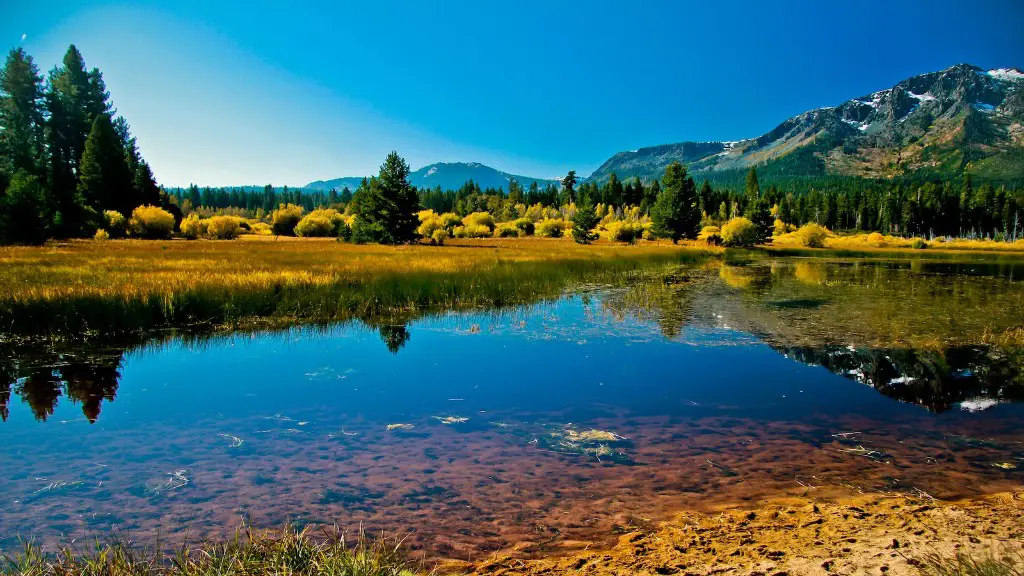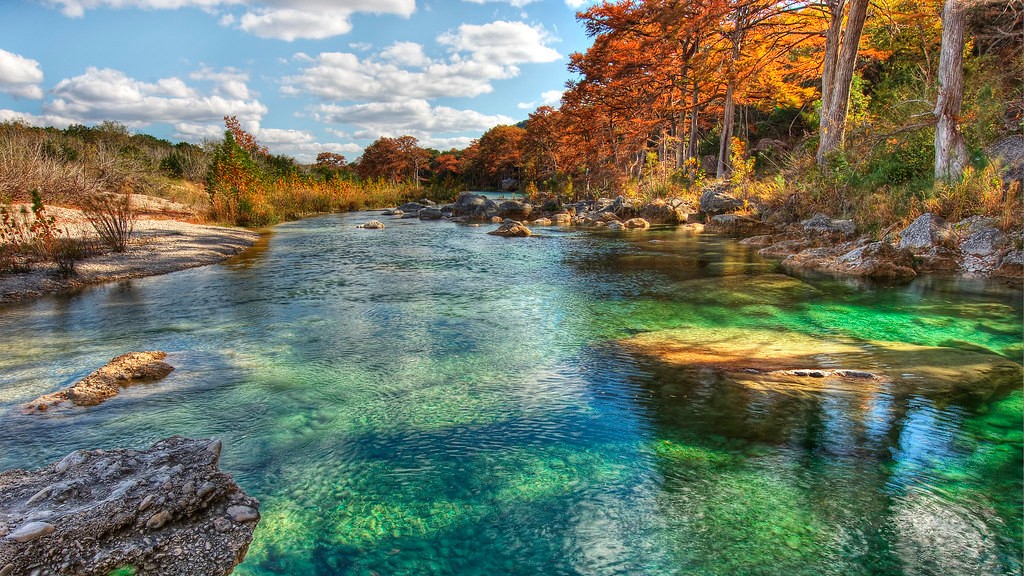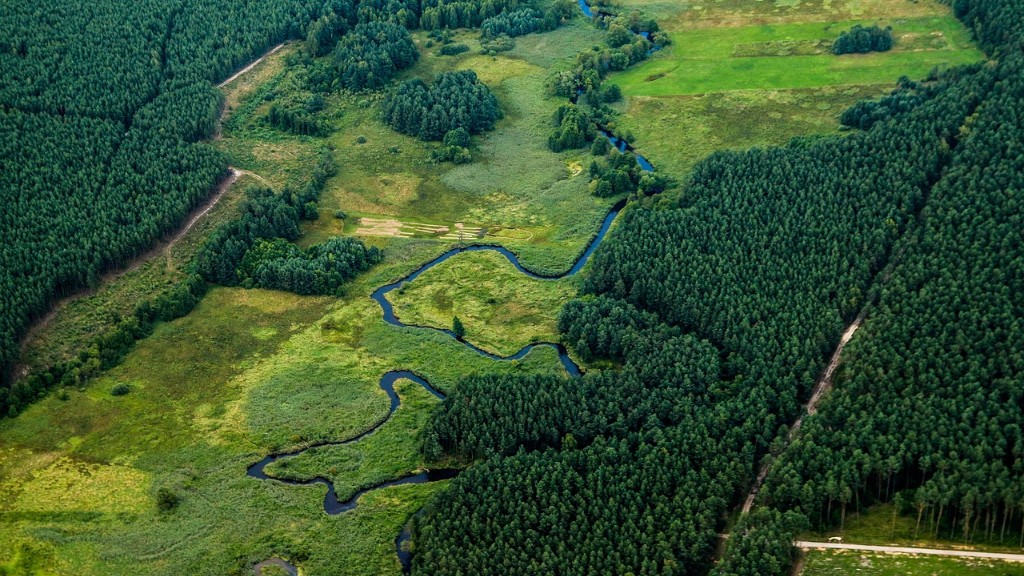The Yangtze River, or Changjiang in Chinese, is one of the longest rivers in the world and is the lifeblood of China. Throughout history, it has been of great importance to the Chinese people both culturally and economically. But why is the river called Yangtze?
Legend has it that the name of the Yangtze River comes from the ancient rulers of China who referred to it as Yangtze or Yangtzu, the river of the Yang. According to this legend, these ancient rulers believed that the river’s source was in the ancient kingdom of the Yang.
In reality, the origins of the name Yangtze are more complicated and not really known for certain. It is possible that the name Yangtze was derived from one of the many local dialects found along the banks of the river. It could also be a corruption of an older Chinese name for the river such as Yung-Ho, which translates to ‘eternal river’.
Despite the uncertain origin of its name, the Yangtze has been of great importance to the Chinese people and has been integral in the development of the country. For thousands of years, the Yangtze has been a source of food and water, a means of transportation and communication, and even a source of inspiration to Chinese artists and poets.
Today, the Yangtze River is still of great significance to the people of China. With more than 3,000 miles of navigable waterways, it is the world’s third-longest river and its economic importance is unquestioned. It is estimated that the river basin generates up to 25 percent of China’s GDP, making it a vital driver of the nation’s economy.
Environmental Impact
The Yangtze River has been greatly affected by the human activity around it. Industrial and agricultural pollution, excessive fishing, and deforestation are some of the major issues that threaten the ecological health of the river. As a result, the Yangtze is subject to frequent flooding, and its fertility is diminishing.
Environmental groups are working to reduce the impact of man on the river. They have been advocating for the restoration of natural habitats, strict regulations of water flow, and the establishment of protected zones surrounding the river.
However, their efforts have been met with opposition from local governments and industries, who argue that the regulation of the river could hurt their profits. In addition, some argue that the benefits of these efforts will be limited if the upstream sources of pollution are not addressed.
Despite these challenges, environmental groups are fighting hard to protect the Yangtze River. With increased public awareness, stricter regulations, and further intervention from the government, it is possible for the Yangtze to become a sustainable river basin once again.
Economy and Infrastructure
The Yangtze River has been a vital part of China’s economy and infrastructure for centuries. Over time, it has provided China with an immense amount of resources, such as fish and agricultural produce. It has also been used to transport goods and people between different areas of the country.
In recent years, the Chinese government has invested heavily in infrastructure development along the Yangtze. This has included the construction of dams, bridges, and canals, as well as massive hydroelectric projects. These projects have helped the country increase its energy output and reduce its reliance on imported energy sources.
In addition, a number of major economic development projects have been launched along the river. These include the Three Gorges Dam, the largest hydroelectric project in the world, and the Shanghai-Chengdu economic corridor, which is expected to become an important economic zone in the future.
These projects have had a positive effect on the economy of the region and have created thousands of jobs. However, there has also been some debate about the environmental and social implications of these projects, as well as their potential long-term impacts on the ecology of the Yangtze River.
Cultural Significance
The Yangtze River has been an important cultural symbol for the Chinese people for centuries. It has inspired countless artists and poets and its myths and legends are part of the national identity. It is not surprising then, that the river has been celebrated in literature, art, and film.
It is also believed that the Yangtze River is a spiritual guardian of the nation, with its myths serving as a reminder of the importance of protecting the environment. In this way, the Yangtze River has been often referred to as a symbol of hope and renewal.
In recent years, the importance of the Yangtze River has been further emphasised by philanthropists, politicians, and other influential figures. The Chinese government has made huge investments in its conservation and protection, and the river is now a central part of the national identity.
Not only is it a vital part of the nation’s commerce, it also helps to provide a link to the past and serves as a reminder of the history and culture of the Chinese people.
Conservation
The conservation of the Yangtze River is of critical importance to the Chinese government and people. In recent years, the government has set up a number of protected areas, including national parks and nature reserves, to ensure that the river remains a viable ecosystem.
The government has also adopted a variety of measures to reduce the impact of pollution and other human activities on the river. These include installing pollution control devices, monitoring water quality, and increasing public awareness about the importance of conserving the river.
In addition, the government has developed a number of initiatives to ensure that the river remains a viable source of income for the people living along its banks. These include the establishment of ‘eco-tourism’ initiatives, which allow tourists to experience the river and its culture, as well as the promotion of sustainable aquaculture and agricultural production.
These efforts are helping to ensure that the Yangtze River remains an integral part of the Chinese landscape and identity, and that it continues to be a source of hope and prosperity for future generations.
Conclusion
The Yangtze River is one of the world’s longest rivers and has been important to the Chinese people for centuries. Its name has an uncertain origin, but it has had an undeniable impact on the development of the nation.
Today, the river plays an important role in the economy of China and its conservation is of the utmost importance. Though the river faces serious environmental challenges, conservation efforts hold promise for the future of the Yangtze.





